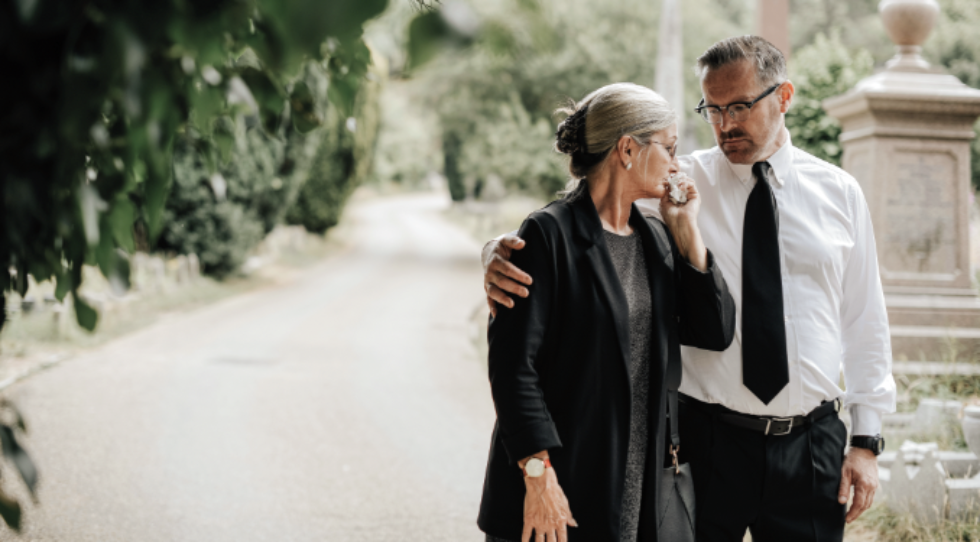
In our pain and grief, we begin to ask questions to help us cope. We have gathered some of those questions and researched those answers. If you ever have questions about your grief, please reach out to us at editor@worshipanew.org, and we will strive to answer those questions for you.
Is this normal?
Short answer, yes. Everyone experiences grief differently. According to Stanford University, “Your grief reactions may cause you to experience such intense or unusual emotions, or even no emotion, and you might worry you’re somehow ‘not like other people.’ Everything from experiencing major upheaval and pain to feeling numb and disassociated can all be ‘normal’ aspects of a grief response. It’s more important to understand this range is possible, and it’s OK to seek support or help.”
How long will my grief last?
Everyone experiences their grief differently, and there’s no set timeline to say that your grief will fade in a month or even a year. Stanford explains this well: “Healing after a loss is a process that can feel like a roller coaster of emotions. There may be gradual improvements that are interrupted by setbacks. How long this grieving process might take for you can also be influenced by other factors in your life at this time.” The best advice is to take your time with your grief and let yourself process it at your own pace and not by the expectations of another person. “You will likely find that as time passes that the pain lessens, and you return to earlier levels of functioning, both in your personal and professional life,” according to the Hospice Foundation of America (HFA).
Does everyone go through the same “stages” of grief?
Grief does not come in a predictable set of stages, according to HFA. As they explain, “People may have different ‘styles’ of grieving. Some people may express their grief verbally, or cry easily; other people may channel their grief into activity. All of these responses are normal; how we grieve is not a measure of how we love. ... Most of us experience grief like a roller coaster: there are ups and downs, good days and bad days. There are no universal stages of grief; each of us has our own personal pathway as we experience loss.”
My routine and how I act has changed since my loss. Is this normal?
This is a normal question to ask. “Each of us is affected by grief in our own way. ... In most cases, these strange actions and thoughts are temporary. They gradually fade and disappear as you continue your journey through the mourning process,” according to HFA. However, please seek out a grief counselor or a support group if you feel this is too far beyond your norm.
What is “ambush grief”?
According to GriefShare, “An ambush of grief is a situation in which something, an event, a person, a place, a smell, almost anything you can think of triggers a memory of your loved one, which leads to an emotional reaction.” Essentially, you are unexpectedly hit with your grief when you are not expecting it. Someone may say something, you may hear a song on the radio, or come across a shirt in a store that they used to wear. Small things can have a big impact. Know that they will happen, and it’s ok to feel grief in those situations.
What are anniversary effects or grief triggers?
“A grief trigger (such as ambush grief) can be anything that causes a strong reminder of your loss or loved one. Anniversary effects refer to the common experience of feeling amplified grief on special occasions such as holidays, birthdays, or the anniversary of your loss,” according to Stanford. Know that those special days and anniversaries that you shared with your loved one will be hard, especially those first couple of years. “We recommend that people working through grief to be intentional about planning to set aside time for remembrance on important occasions. Grief triggers are normal, and it’s OK that the memories of your lost one live on,” Stanford writes.
How do I get over my loss?
“Regaining your balance after a major loss is a process of slowly integrating a new reality into your life rather than a ‘getting over’ a hurdle,” according to Stanford. Help is available during this time of loss. Click here for a list of resources or seek out a mental health professional in your community.
Is it wrong to be comforted that they are no longer in pain?
HFA writes, “Many grieving people find great comfort in having had the opportunity to say ‘goodbye’ to the person who died, or realize there is little they could have done to prevent the loss. Grievers who have good social support or a strong sense of spirituality often face grief with more resilience, and studies show that is not uncommon.”
How can I cope with a crisis of faith or purpose following loss?
Know that God is always with you and will be with you through this loss. Stanford writes, “A well-known description of grieving speaks of a ‘walk through the valley of the shadow of death’ from Psalm 23 (ESV). ... Even familiar terrain looks and feels different when covered in shadows and enclosed by cliffs. When we grieve, familiar ground shifts under us, and we find ourselves in a new landscape. Even when our friends and family members are nearby, they may seem far away or that they’re not paying attention to our loss. We may lack the energy to make or carry out plans. For some, loss may prompt deep spiritual questions: Why do bad things happen to good people? How can I redeem the loss I am feeling? What would the one I’m remembering want me to learn from their life? How can I honor them in my own life? The answers will come slowly, they have no prescribed timetable, and each of us will have a different response. This is the time to make time for simply being a mourner.”


